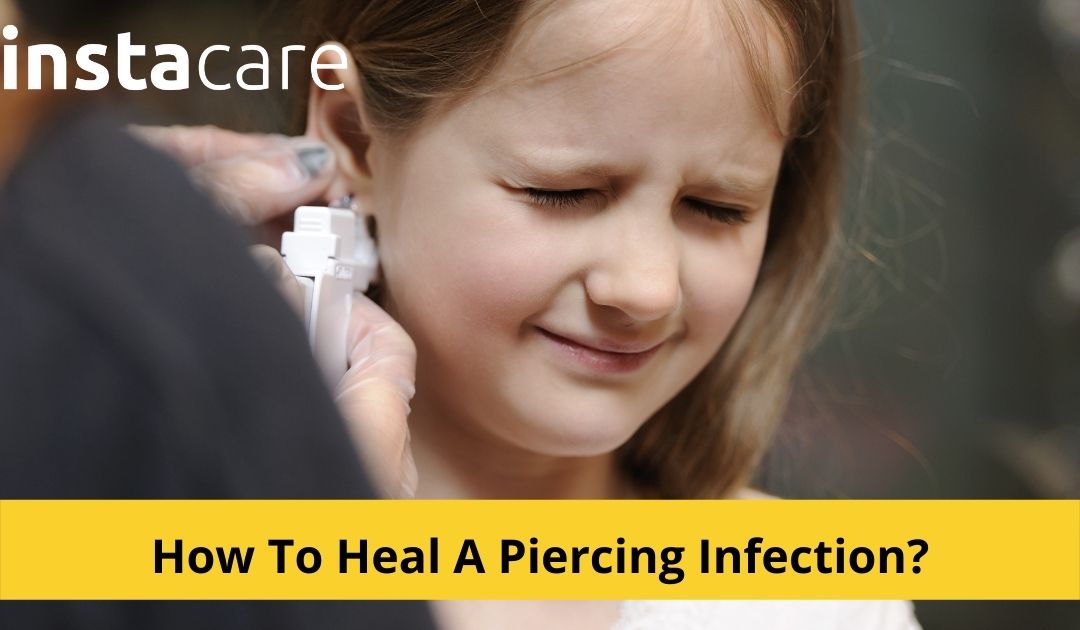Body piercings are a socially acceptable body alteration that has grown in popularity. Ear piercings, lip piercings, nose piercings, eyebrow piercings, and other piercings are common. Unfortunately, the most prevalent infectious complication associated with body piercings is localized cellulitis. Therefore, if you feel you have a piercing infection, you should get medical attention as soon as possible. While the early stages of a piercing infection usually are not severe, you will end up with a much more severe disease if you wait too long.
Paying diligent attention during the healing process and afterward is the most excellent approach to safeguard the health of your piercing and your general health. This way, you won't miss anything important along the route.
Causes Piercing Infection
Infection piercing can happen to everyone who gets a new piercing, depending on where they got it.
Equipment that hasn't been sterilized
Infection might develop if your piercer utilizes contaminated or previously used piercing equipment.
Touching with dirty hands
It mainly entails the spread of disease-causing bacteria from the piercer's hands to instruments or straight to your location. Because the entire operation requires contact between the source of contamination and your body, it might happen when inserting the posts.
Jewelry that is of poor quality
Finally, a new ear piercing may get infected if the initial pair of jewelry causes irritation, which leads to itching. Itching causes the skin to perforate, making it simple for bacteria to enter. As a result, germs function as antigens, triggering the immune system and causing pus to accumulate following inflammation, according to Simple Remedies. Nickel is an example of lousy material which causes piercing infection.
Also, avoid sleeping with your new piercing in contact with your pillows or bed sheets. Bacteria in your bed may aggravate your piercing, or your bedding may grab your jewelry, causing further complications.
View More: Can You Eat Cold Chicken All You Need To Know
Signs and Symptoms Piercing Infection
Educating oneself is the most excellent approach to preparing for piercing infections. Here are some of the most prevalent indications and symptoms piercing infection to keep an eye out for:
- One of the most typical indicators of infection is redness, pain, or swelling at the piercing site that lasts more than a few days. However, it is common for these problems to appear just in the first few days.
- Infection is confirmed by green, yellow, or white discharge. It may have a foul odor, or you may observe blood or pus in some circumstances. In most cases, a precise release is nothing to be concerned about.
- Piercing infections are indicated by an increased feeling around the piercing region. This can happen if you wear low-quality jewelry.
- The presence of a lump at the piercing site indicates piercing infections. It's also possible that the node is pus-filled or sensitive to touch.
- Increased discomfort in the location might indicate infection from the piercing. However, if your discomfort lasts longer than a week after obtaining a new piercing, something else is probably at work.
- Infection is indicated by a burning or itchy feeling around the piercing. This kind of symptom should not be present in a well-healed piercing.
- A lump may occur next to the piercing on occasion. Another indicator of piercing infection is a lump. This lump may be packed with pus or discharge coming from it. Alternatively, the hump might be a keloid, just an accumulation of scar tissue.
Treatments Piercing Infection
It's time to cure your piercing infection now that you've established it. Fortunately, you have a variety of solutions that do not require a trip to the doctor's office.
- Apply a cold pack to assist in minimizing swelling or bruising. An ice pack might help combat infection by reducing swelling around your piercing. Ice should never be applied directly to the skin since it might cause tissue damage. Instead, place a layer of fabric or a cotton towel between the cold pack and the skin.
- Sea salt soaks is an excellent method to keep your piercing clean. You may either develop your solution or choose from various store-bought choices. There are even sprays available for the treatment of piercing infections.
- Antibacterial and antimicrobial lotions and treatments are excellent techniques to eliminate the infection's cause. These products operate by removing germs and organisms from your body, allowing your body to fight the disease more quickly and effectively.
- Please pay a visit to your piercer or give them a call. They'll give you suggestions based on the piercing and your symptoms. In addition, they will frequently repeat the post-piercing cleaning procedure, which can aid in the rapid elimination of infection.
- The piercer will most likely make treatment recommendations for minor infections.
- If you have a significant infection, the piercer should refer you to a doctor with specific details regarding the wound, piercing, and possible treatments.
Please book an appointment with the Best ENT Specialist in Lahore, Karachi, Islamabad, and all major cities of Pakistan through InstaCare, or call our helpline at 03100002273 to find a verified doctor for your disease.

